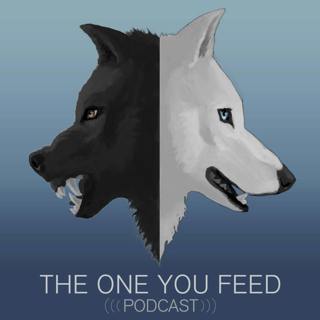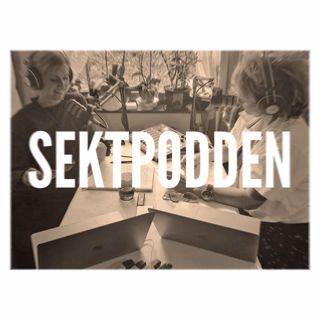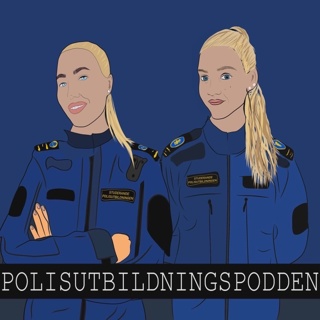
Amy Banks
Amy Banks, M.D., has devoted her career to understanding the neurobiology of relationships. In addition to her work at the Jean Baker Miller Training Institute (JBMTI), she was an instructor of psychiatry at Harvard Medical School. She is the first person to bring relational-cultural theory together with neuroscience and is the foremost expert in the combined field.Amy is the creator of the C.A.R.E. Program, an easy to use, practical guide that helps clinicians and laypeople assess the quality of their relationships and strengthen their neural pathways for connection. Amy also has a private practice in Lexington, MA, that specializes in relational psychopharmacology and therapy for people who suffer from chronic disconnection. Most recently, Amy has joined the core group of Harville Hendrix’s Relationships First, a small group of prestigious scientists and cultural leaders who promote the idea that “healthy relationships are non-negotiable in a healthy society.”Her latest book is: Four Ways to Click: Rewire Your Brain for Stronger, More Rewarding Relationships Our Sponsor this Week is Casper MatressesVisit casper.com/feed and use the promo code "feed" to get $50 off!!In This Interview Amy and I Discuss...The One You Feed parableHow feeding neurons means stimulating themHow culture can feed our bad wolfThe power of isolation & how it can lead to more sicknessHow humans work best in healthy connection & interdependence with one anotherThe importance of identifying and building healthy relationshipsThe "5 good things" that exist in a healthy relationshipHow boundaries in relationships are overratedThe 1 sign that you are at a 340% higher risk of premature deathThe 4 neural pathways that function in the relationship realmFor more show notes visit our websiteSee omnystudio.com/listener for privacy information. See Privacy Policy at https://art19.com/privacy and California Privacy Notice at https://art19.com/privacy#do-not-sell-my-info. Learn more about your ad choices. Visit megaphone.fm/adchoices
29 Sep 201555min

Kevin Breel: Depression and Comedy
Kevin Breel is a 21-year-old writer, comedian, and activist for mental health. His work has been featured by NBC, CBS, The Huffington Post, MTV, CNN, The Today Show, Mashable and The Wall Street Journal. His passionate TEDx talk entitled "Confessions of a Depressed Comic" went instantly viral online- amassing millions of viewers and being featured on more than 200+ media outlets. Mashable called it "one of the moments that brought the world together" and the Huffington Post said the talk was "simply amazing." As a comedian, he’s performed in venues all across the globe; including the House of Blues, Rogers Arena and the historic Colosseum. As a mental health activist, he's a National Spokesperson for the Bell LET'S TALK Campaign and has been a guest speaker at Ivy League schools and billion dollar companies. His first book, available now, is called Boy Meets Depression: Or Life Sucks and Then You Live Our Sponsor this Week is Spirituality and Health Magazine. Click here for your free trial issue and special offer. In This Interview Kevin and I Discuss... Still wrestling with depression His viral Ted talk Learning to build the skill set to handle depression Defining our emotional landscape The benefits of waking up early The power and stabilizing force of a routine The importance of honest conversations with others Taking care of the physical body to help with depression Learning to recognize when were taking a turn for the worse and knowing how to respond For more who notes visit our websiteSee omnystudio.com/listener for privacy information. See Privacy Policy at https://art19.com/privacy and California Privacy Notice at https://art19.com/privacy#do-not-sell-my-info. Learn more about your ad choices. Visit megaphone.fm/adchoices
23 Sep 201541min

Tony Horton
[powerpress] This week we talk to Tony Horton about the law of consistencyTony Horton is the master behind the best-selling fitness series: P90X®, P90X2®, 10-Minute Trainer®, his latest 30-minute dynamo P90X3® and the brand new “X” series prequel; P90. Tony is a world-class motivational speaker and author of the top selling books “Bring It,” “Crush It,” and the incredibly motivating “The Big Picture.” He has appeared on countless television and radio programs as a fitness and lifestyle expert and is sought after to appear at Fortune 500 corporate events, health and wellness expos, universities and over 40 military bases throughout the world.For the past 25 years, Tony has used his unique brand of humor to change the lives of over 8 million people through his powerful fusion of motivation, physical exercise, nutrition and discipline. From world class athletes, pro sports teams, congressmen, celebrities and the U.S Military, to corporate executives, couch potatoes and busy moms and dads alike, Tony has what it takes to reach and teach them all.Our Sponsor this Week is Emeals. Try eMeals risk free for 14 days. Head to EMEALS.COM to sign up today—it only takes a few minutes to solve your dinnertime dilemma. Simply choose a food style and you’ll be ready to experience the power of planning with your 14-day free trial.With eMeals, you’ll never again have to ask yourself, “what’s for dinner.” That’s EMEALS.COM (Remember to tell them you heard about them from us when you check out.) In This Interview Tony and I Discuss...The One You Feed parableHow Tony used to feed his bad wolfHow we all need different approaches to changing our livesThe importance of the right teacherStarting with the physical aspect of changeWorking on the things we can controlThe mental benefits of physical actionThe downside of shortcuts to feeling betterDoing your best and forgetting the restFor more show notes and links to Tony visit us at our websiteSee omnystudio.com/listener for privacy information. See Privacy Policy at https://art19.com/privacy and California Privacy Notice at https://art19.com/privacy#do-not-sell-my-info. Learn more about your ad choices. Visit megaphone.fm/adchoices
14 Sep 201541min

Sharon Salzberg
Sharon-Salzberg the one you feed This week we talk to Sharon Salzberg about the essential questionSharon Salzberg is one of the worlds best know Buddhist teachers and has been leading meditation retreats worldwide since 1974. She teaches both intensive awareness practice (vipassana or insight meditation) and the profound cultivation of lovingkindness and compassion (the Brahma Viharas). She is a co-founder of the Insight Meditation Society in Barre, Massachusetts and The Barre Center for Buddhist Studies.She is the author of many books including the New York Times Best Seller, Real Happiness: The Power of Meditation: A 28-Day Program, Love Your Enemies: How to Break the Anger Habit & Be a Whole Lot Happier with Robert Thurman, Faith: Trusting Your Own Deepest Experience and Lovingkindness: The Revolutionary Art of Happiness. Sharon's latest book is Real Happiness At Work: Meditations for Accomplishment, Achievement, and Peace.Our Sponsor this Week is Spirituality and Health Magazine. Click here for your free trial issue and special offer. In This Interview Sharon and I Discuss...The One You Feed parableHer view on Lovingkindness after teaching about it f0r 20 yearsUnderstanding the ways that we are all connected to each otherThe difference between lovingkindness and compassionIdiot CompassionThat lovingkindness and compassion don't equate to weaknessThe fundamental teaching "Everyone wants to be happy"How it's never to late to make a changeLife lessons manifesting during meditationAvoiding the all or nothing mindsetHow nothing stays the same, especially our mindsetHow the mind is naturally radiant and pureThe "visitors" that obscure our mindHow what we resist persistsThe essential question to ask ourselvesBalancing repression and indulgence in our emotionsHow mindfulness is sometimes called "The Place In The Middle" For more show notes and links to Sharon's work please visit our webpageSee omnystudio.com/listener for privacy information. See Privacy Policy at https://art19.com/privacy and California Privacy Notice at https://art19.com/privacy#do-not-sell-my-info. Learn more about your ad choices. Visit megaphone.fm/adchoices
8 Sep 201547min

BJ Fogg- Habits
This week we talk to BJ Fogg about changing our behavior Dr. BJ Fogg directs the Persuasive Tech Lab at Stanford University. A psychologist and innovator, he devotes half of his time to industry projects. His work empowers people to think clearly about the psychology of persuasion — and then to convert those insights into real-world outcomes. BJ is the creator of the Fogg Behavioral Model, a new model of human behavior change, which guides research and design. Drawing on these principles, his students created Facebook Apps that motivated over 16 million user installations in 10 weeks. He is the author of Persuasive Technology: Using Computers to Change What We Think and Do, a book that explains how computers can motivate and influence people. BJ is also the co-editor of Mobile Persuasion, as well as Texting 4 Health. Fortune Magazine selected BJ Fogg as one of the “10 New Gurus You Should Know”. Our Sponsor this Week is Spirituality and Health Magazine. Click here for your free trial issue and special offer. In This Interview BJ and I Discuss... The One You Feed parable The wolf you pay attention to is the one you feed The two main limits in life: time and attention The Fogg Behavioral Model- Motivation, Ability and Triggers How behavior change is about more than motivation Designing effective behavior change Managing the Ability part of the behavioral model Designing behavior to fit into our every day routines For more show notes and BJ Fogg links visit our websiteSee omnystudio.com/listener for privacy information. See Privacy Policy at https://art19.com/privacy and California Privacy Notice at https://art19.com/privacy#do-not-sell-my-info. Learn more about your ad choices. Visit megaphone.fm/adchoices
2 Sep 201540min

Jeff Goins
This week we talk to Jeff Goins about The Art of WorkJeff Goins is a full-time writer who lives just outside of Nashville, Tennessee, with his wife, son, and border collie. He has authored four books and frequently speaks on writing, creativity, and making a difference. His website, Goinswriter.com, has been visited by more than four million people from all over the world.His latest book is called The Art of WorkOur Sponsor this Week is Emeals.Try eMeals risk free for 14 days. Head to EMEALS.COM to sign up today—it only takes a few minutes to solve your dinnertime dilemma. Simply choose a food style and you’ll be ready to experience the power of planning with your 14-day free trial.With eMeals, you’ll never again have to ask yourself, “what’s for dinner.” That’s EMEALS.COM (Remember to tell them you heard about them from us when you check out.)In This Interview Jeff and I Discuss...The One You Feed parableThe fixed and growth mindsetsChoosing between being a victim and a victorThe secret to an extraordinary lifeFinding your callingHow for most people finding their calling is a roundabout processHow hidden in our obstacles and challenges often lie our purposeLearning to take the next stepUsing the surprises and setbacks we encounter for the goodWalking the path of your lifeThat difficulties are a prerequisite to a meaningful lifeHow mentors come in many forms and multiple peopleAccidental apprenticeshipsHow no one gets changed by an idea, it takes action along with the ideaNot dreaming but doingHow the work always comes before we feel readySee more show notes at our websiteSee omnystudio.com/listener for privacy information. See Privacy Policy at https://art19.com/privacy and California Privacy Notice at https://art19.com/privacy#do-not-sell-my-info. Learn more about your ad choices. Visit megaphone.fm/adchoices
26 Aug 201545min

Todd Henry
This week we talk to Todd Henry about developing your authentic voiceTodd Henry teaches leaders and organizations how to establish practices that lead to everyday brilliance. He is the author of three books (The Accidental Creative, Die Empty, and Louder Than Words) which have been translated into more than a dozen languages, and he speaks and consults across dozens of industries on creativity, leadership, and passion for work.His book Die Empty was named by Amazon.com as one of the best books of 2013.His latest book, Louder Than Words, is about how to develop an authentic voice that resonates and creates impact. Bestselling author Tom Rath called it “…one of the best guides to living a meaningful life I have ever read Our Sponsor this Week is Emeals.Try eMeals risk free for 14 days. Head to EMEALS.COM to sign up today—it only takes a few minutes to solve your dinnertime dilemma. Simply choose a food style and you’ll be ready to experience the power of planning with your 14-day free trial.With eMeals, you’ll never again have to ask yourself, “what’s for dinner.” That’s EMEALS.COM (Remember to tell them you heard about them from us when you check out.) For Detailed Show Notes Visit our WebpageSee omnystudio.com/listener for privacy information. See Privacy Policy at https://art19.com/privacy and California Privacy Notice at https://art19.com/privacy#do-not-sell-my-info. Learn more about your ad choices. Visit megaphone.fm/adchoices
19 Aug 201546min

Mini Episode- Consistency
Mini Episode: ConsistencyThe importance of consistency in behavior change. Consistency of action is critical. It's amazing what a series of small steps taken day after day can do. "What you do every day matters than what you do once in awhile"- Gretchen Rubin "A jug fills drop by drop"- The Buddha"Consistency is the last refuge of the unimaginative" -Oscar WildeOur Sponsor this Week is Spirituality and Health Magazine. Click here for your free trial issue and special offer. Some of our most popular interviews that you might also enjoy:Kino MacGregorStrand of OaksMike Scott of the WaterboysTodd Henry- author of Die EmptyRandy Scott HydeSee omnystudio.com/listener for privacy information. See Privacy Policy at https://art19.com/privacy and California Privacy Notice at https://art19.com/privacy#do-not-sell-my-info. Learn more about your ad choices. Visit megaphone.fm/adchoices
16 Aug 20158min





















